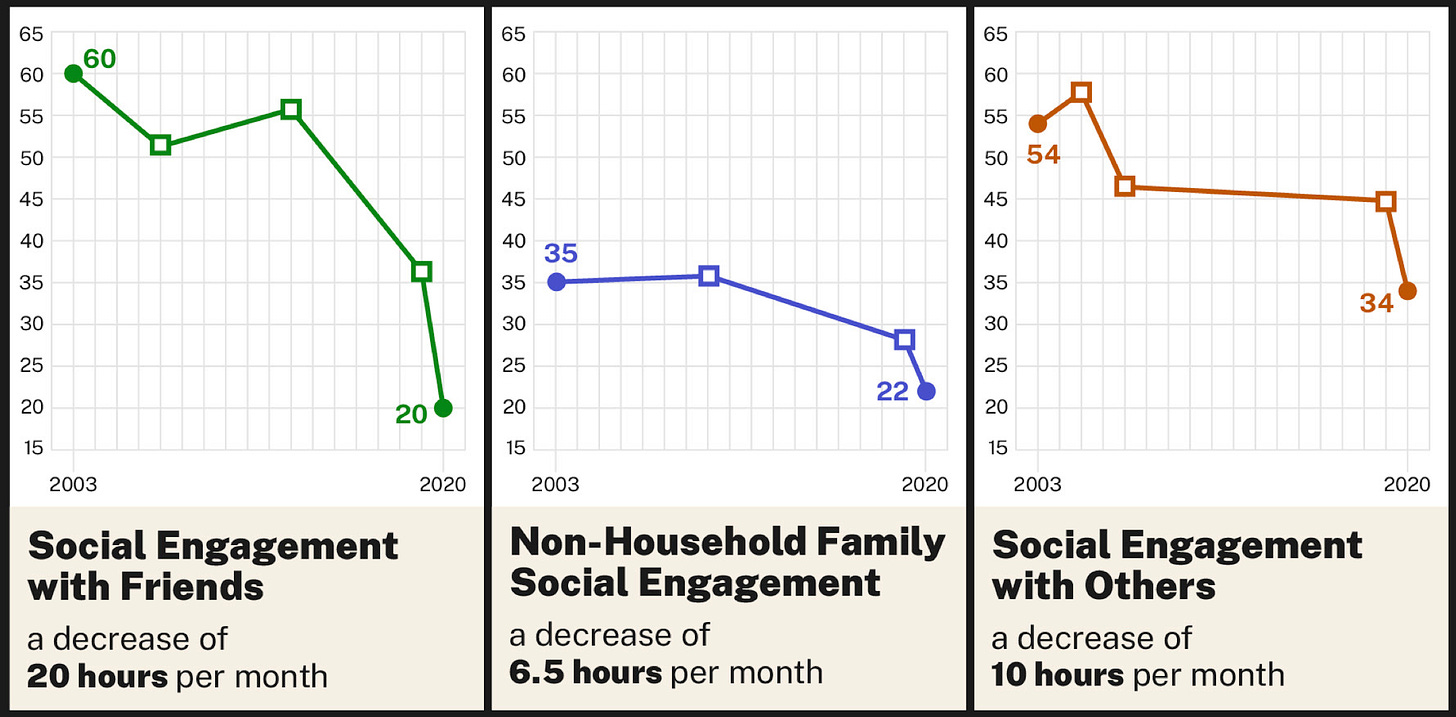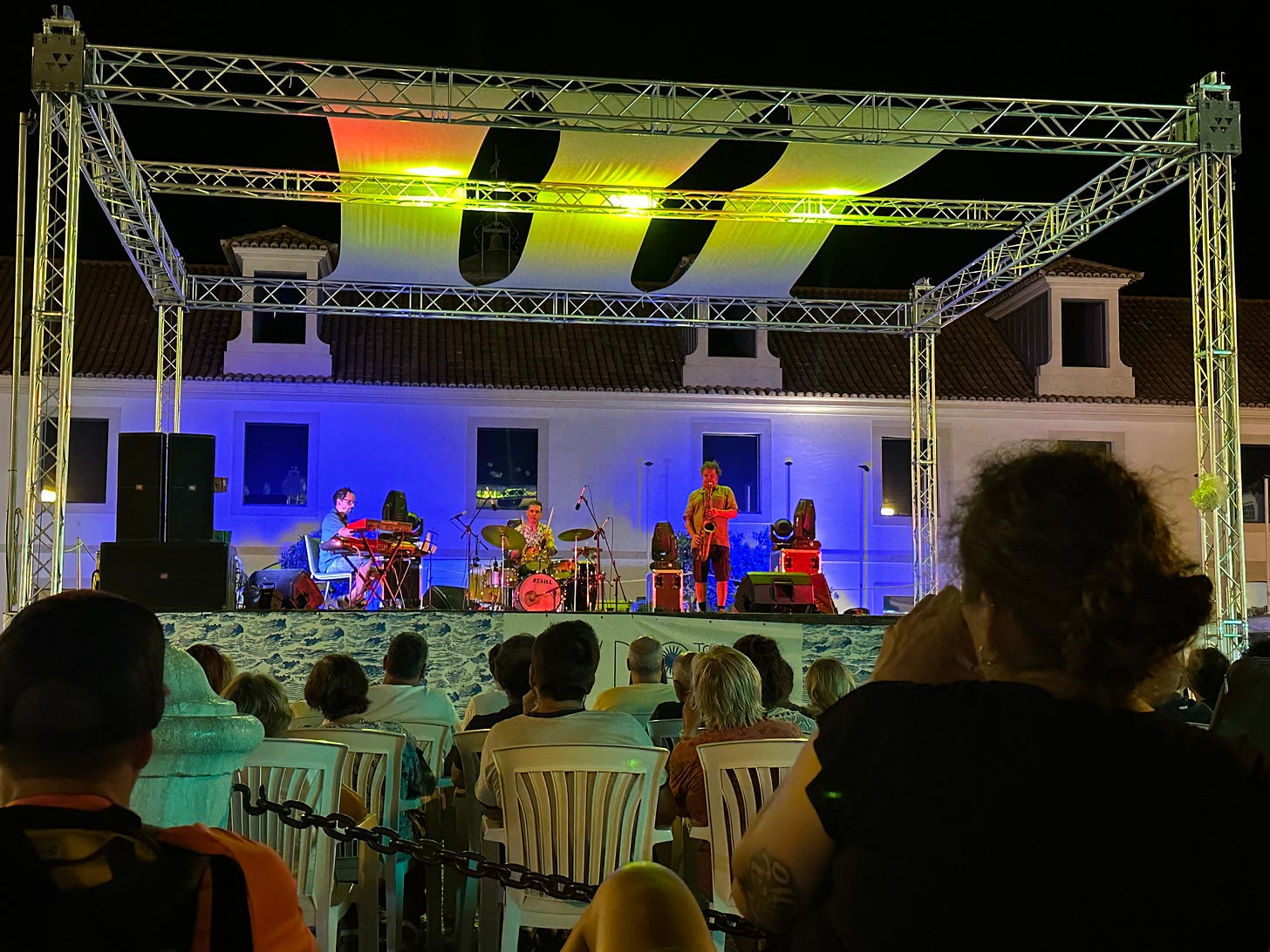Hilary Clinton recently wrote an article in The Atlantic called “The Weaponization of Loneliness”. While you may need a subscription to read her full article, you can read the underlying thesis written by the Surgeon General of the United States for free. It answered a question that has nagged at the back of my mind for some time and likely seems totally unrelated … how can VRSA afford so much free entertainment?
Our Epidemic of Loneliness and Isolation
Permit me to summarise the Surgeon General’s introductory comments:
When I first took office as Surgeon General in 2014, I didn’t view loneliness as a public health concern. But that was before I embarked on a cross-country listening tour…People began to tell me they felt isolated, invisible, and insignificant…In recent years, about one-in-two adults in America reported experiencing loneliness. And that was before the COVID-19 pandemic cut off so many of us from friends, loved ones, and support systems, exacerbating loneliness and isolation…Loneliness is far more than just a bad feeling—it harms both individual and societal health. It is associated with a greater risk of cardiovascular disease, dementia, stroke, depression, anxiety, and premature death. The mortality impact of being socially disconnected is similar to that caused by smoking up to 15 cigarettes a day, and even greater than that associated with obesity and physical inactivity. And the harmful consequences of a society that lacks social connection can be felt in our schools, workplaces, and civic organizations, where performance, productivity, and engagement are diminished. — Our Epidemic of Loneliness & Isolation, page 4
The impact of loneliness seems evident to me as I view what I left behind.
A polarised society;
Distrust of institutions;
Some fear “strangers”1;
Are susceptible to conspiracy theories; and
The loneliest find community in a cult.
Again, from the Surgeon General’s report:
A fraying of the social fabric can also be seen more broadly in society. Trust in each other and major institutions is at near historic lows. Polls conducted in 1972 showed that roughly 45% of Americans felt they could reliably trust other Americans; however, that proportion shrank to roughly 30% in 2016. This corresponds with levels of polarization being at near historic highs.
A Small “Bankrupt” Town
VRSA is a small town with a lot of debt. There were some scandals related to prior local officials. I have heard so many contradictory stories that I cannot offer an accurate reporting of the facts. But suffice it to say, in March a bank seized several government properties due to non-payment of longstanding debts. I have been aware of this situation for some time…and have always wondered, how can VRSA afford to offer so much free entertainment to its residents?
I realize it is summer, and activity levels are unusually high … but free concerts in the square, or in the gardens are not limited to July and August. It occurs all year round. There have been months when I observed the municipal workers erecting and dismantling the praça stage multiple times. With at least one event every week, they decided to leave it up throughout August. But for every event there is security2, and, of course, there is the need for additional trash cleanup in the morning. Yes, there are sometimes vendors that “rent” kiosks to sell food or drink … but I suspect since these are erected, dismantled, and then stored by the city the profit derived by the city is nominal at best. So again, I ask, how can VRSA (and frankly every town and city in Portugal) afford so much free entertainment?
How Can They Not?
Reading the Surgeon General’s report answered that question for me: how can they not? It is a simple case of what are our priorities…where should we invest? Again, from the report:
Given the profound consequences of loneliness and isolation, we have
an opportunity, and an obligation, to make the same investments in addressing social connection that we have made in addressing tobacco use, obesity, and the addiction crisis.
It seems to me Portugal, and I suspect most European countries, invest in activities that promote social connectivity … that enhance personal relationships and a sense of community. As I wrote before, it is a commitment to socialism rather than individualism that permeates every aspect of life in Portugal.
Two Final (Related) Notes
First, none of the above is intended to minimize the sense of loneliness many expats/immigrants experience when living in another country. Forming relationships with “locals” is challenging when you do not speak the language. And one cannot assume that every other immigrant in town is “friend material”. We are fortunate to have a few Portuguese friends and many expat friends in Portugal. And we work to stay in touch with our friends and family in America. But loneliness is a real issue for many that move here.
Secondly, a story and an observation echos last week’s post. Our Portuguese friend, Ana, introduced us to the owner of the kitchen/home goods store (Caravela) in VRSA. Since we needed everything when we moved into our new home, we did a lot of shopping at Caravela … so much in fact that the owner, Helena, and her husband, Pedro, personally delivered everything to our home. VRSA is a small town, so it is not unusual to see people you know passing on the street. While in the US, I might have waved or nodded3 … now I have become very Portuguese. When I run into Helena or Pedro I stop and kiss each of their cheeks. We ask each other how things are going … we ask about family … we listen intently, sincerely interested in the response. Yes, this might mean we are a few minutes late. For real locals, like Ana, this might mean stopping 10 or 12 times en route to somewhere or the other … but like free concerts in the square, such encounters battle loneliness and isolation. And I am grateful for that.
Beijinhos, Fica bem,
Nanc
Survey Says: I asked, “Why did you subscribe?” I was surprised that the largest share of people have already moved to Portugal (36.6%). Next are those considering a move (26.5%) while the third largest group doesn’t plan to move but is still interested (14%). BTW: nearly all those thin slices are a variation on living in Portugal or planning to move to Portugal.
Don’t help the person who rings your doorbell…instead shoot them.
Fortunately, I have never seen it needed.
And I suspect I bump into a lot more people I know because I am not in my car…you can walk everywhere in VRSA.









Nancy, always love your thoughtful perspectives.
Friend material” is pivotal ... and how to go about finding that! So often the choice, when first landing in a foreign land, seems to be a kind of “speed dating” at a bar or restaurant. That can spin a lot of wheels.
So for people in the western Algarve (greater Lagos area) I created a facebook page called “Lagos Portugal Conscious Community & Events” in order to create an easier entry to meet kind, respectful like-minded people who want to discuss more than the weather and when they got their residency permit.
Among other goings-on, I have regular gatherings at my home where we check in on whatever is on our heart and head and then do a short meditation together. Lovely connections. Maybe you’ll have the opportunity to join us sometime :-)
Being comfortable with oneself and spending time alone is not necessarily loneliness. The SG's observation is specific to what's happened in the US and I've little hope it will improve. The atmosphere in Portugal is one of calm and acceptance and why I've chosen to live here. I look forward to connecting with people who share this peaceful place.